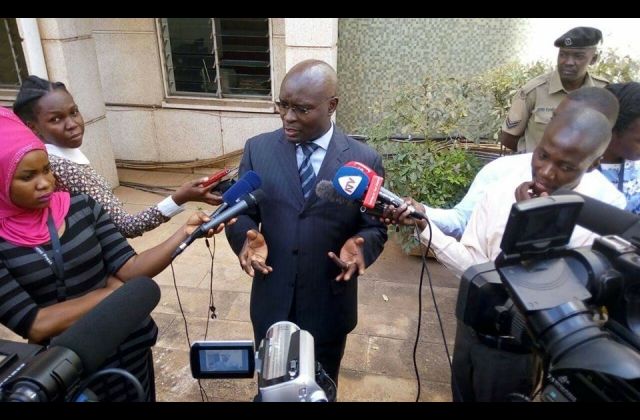Ugandans will go to polls on January 14, 2021, to elect their Members of Parliament, the Electoral Commission (EC) has announced.
The electoral body has also gazetted November 9, 2020, to January 12, 2021, as the campaign period for all nominated MP candidates.
Addressing news conferences on Thursday EC chairperson Simon Byakakama said all campaigns should follow Standard Operating Procedures (SOPs) to guard against the spread of covid-19.
The electoral body last week concluded nominations for candidates aspiring for different positions on local government councils and Parliamentary levels, paving way for campaigns.
The countrywide exercise kicked off with the nomination of LC V chairperson candidates, City and Division Mayors and all administrative units in the local government and their respective councilors.
However, many of the candidates have been barred by the police from carrying out campaigns, asking for a clear roadmap which many of the candidates do not have.
Parliament on Monday asked EC to set an election date following incidents of candidates blocked by the police from carrying out campaigns asking for a clear roadmap which many of the candidates do not have.
According to the MPs, before the nominations of both local and Parliamentary candidates, the electoral body and the ministry of justice assured the House that the commission would announce the election date immediately after nominations.
The MPs argued that there was no reason for EC to keep polls dates a secret yet section 18 (1) of the parliamentary elections Act, states that EC shall appoint election date after nominations.
More than 2.5 million new voters have registered to participate in the 2021 general elections. There are over 17.7 million voters on the updated voters’ roll published by EC including old and new voters.
There were over 15.2 million on the voters’ roll in 2016 – when the country last held general elections. Out of the over 15.2 million registered voters in 2016, more than 10.3 million cast votes, representing 67.6%.
Statistics published by the electoral body show that elections will take place at 34,344 polling stations. The polling centers have increased by over 6,000 from 28,010 in 2016.
This is explained by the creation of new electoral areas and administrative units over the past four years. The number of villages has increased by more than 10,000 from 57,842 to 68,733 now. The number of districts has increased to 135 from 112 in 2016.




